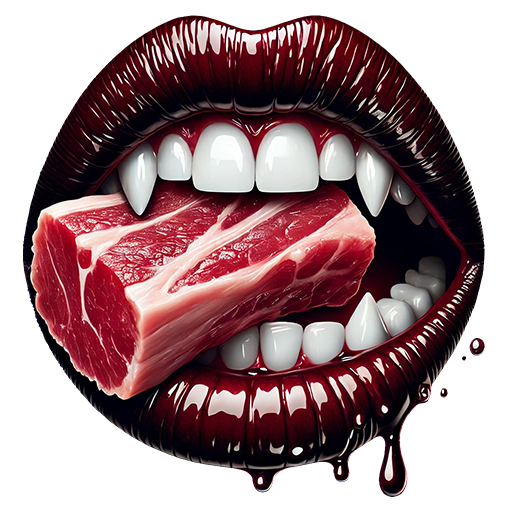Just when I thought our arrangement with the government was set in stone, they surprised us with a new proposition—one that makes me realize just how ambitious they really are. In the latest correspondence, they’ve presented an idea that goes far beyond the initial partnership of sending us problem LPs and even beyond “special cases” for Farm Three. Now, they want to take it mainstream.
They’re calling it FemCore, a front for a meat distribution plant that would process our harvests on a much larger scale. The idea is bold, almost unthinkable: human meat, rebranded and repackaged to look like a “bio-meat” alternative. They’d market it as the next step in ethical, lab-grown protein, taking advantage of the rising trend of plant-based and cultured meats to slip this product onto store shelves. It would be sold under the guise of sustainable, cruelty-free “BoiMeat” or something similar, playing into the public’s desire for new food innovations.
It’s chilling how well-thought-out their plan is. They’re proposing a high-tech facility for processing, fully equipped to handle the demands of mass production. Each LP would be tagged and sorted upon arrival, ensuring that everything was as streamlined as possible. From there, the “meat” would be packaged into nondescript cuts, ground into “protein patties,” or even made into pre-seasoned portions, all ready for distribution. To the untrained eye, it would look like any other meat alternative—clean, modern, and harmless. And yet, the reality of it would be far darker.
Their plan hinges on the idea that no one would question it. With the right marketing, they believe they can convince the public that this new protein source is nothing more than a “lab-grown miracle.” The packaging, the branding, the entire campaign would be crafted to project sustainability and ethics, hiding the true origin of every cut beneath layers of marketing gloss.
The audacity of it is almost impressive, but it also makes me wary. FemCore would mean an industrial approach that goes against our roots, a mass production model that removes much of the personal touch that each Femcan brings to her craft. Here at the Human Farm, each LP is handled with care, every harvest a product of tradition, discipline, and respect. This new model feels… sterile, disconnected.
Still, the government is insistent, driven by the potential profits and the sheer scale of what FemCore could represent. They’ve assured us that our network will be kept secure, that the origins will be impossible to trace back to any farm. But they’re pushing for a larger operation, asking us to increase our intake, speed up processing, and treat LPs like simple units in a production line.
The other Femcans are divided. Femcan Mara sees potential, a way to expand our reach and establish our dominance in a new way, while Femcan Tanya and I feel more cautious. We’ve built our farms with purpose, grounded in tradition, and the thought of becoming part of a massive, sanitized production plant feels like a step too far. But if we refuse, there’s a risk of the government pulling its support altogether, and none of us wants to consider the repercussions of that.
For now, the future of FemCore is uncertain. We’ll be gathering soon to discuss whether this expansion is the right path for us or if we need to find a way to push back. There’s a lot at stake, and the wrong choice could mean losing the essence of what we’ve built. Whatever happens, the Human Farm and its values come first.
Until the next move,
Femcan Lana



